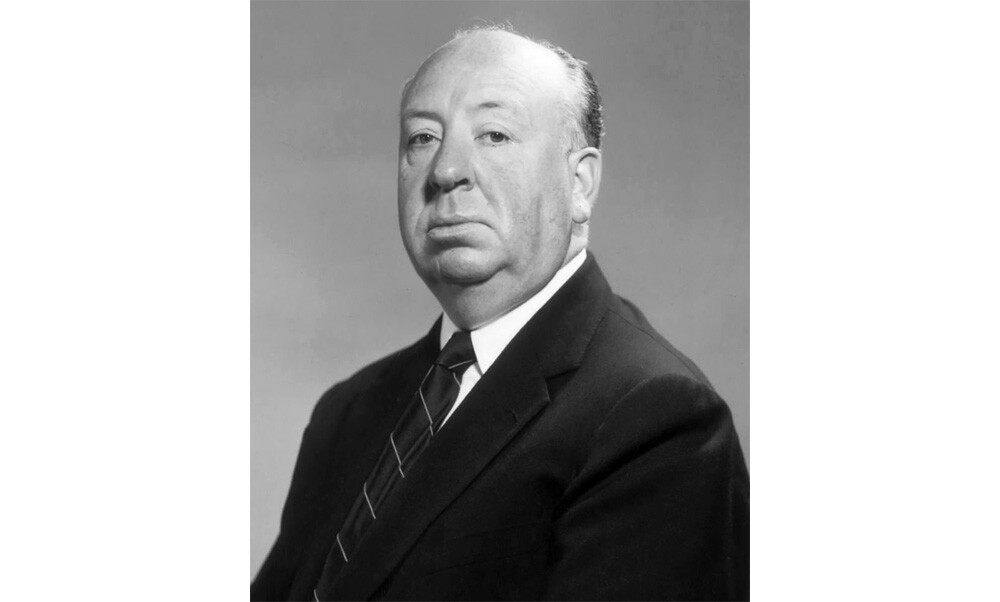The paper later issued a correction. The flood had only taken 30 pigs. The farmer had said “30 sows and pigs,” and the reporter misheard this as “30 thousand pigs.” See, this is why, sometimes, we like to do interviews exclusively over email.
5 Corrections That Only Raise Further Questions

Correction: When we stated last Tuesday that the news is infallible and never wrong about anything, that was inaccurate. Sometimes, errors do slip in, and sometimes, we receive official clarifications later. Usually, we don’t respond to these corrections by saying, “Oh. Thanks for the heads-up.” We’re just baffled that this correction should ever have been necessary.
5The USSR Had to Formally Declare Lenin Was Not a Mushroom
Soviet TV viewers were treated in May 1991 to what appeared to be a serious TV program. Piatoe Koleso was a talk show, and its guest this evening was Sergei Kurekhin, a then-unknown artist. This evening, he assumed the role of a scholar, talking about the Bolshevik revolution in the context of other revolutions around the world.
The Mexican revolution, he said, had shared many similarities with Russia’s. In Mexico, the revolutionaries had largely been influenced by the hallucinogenic properties of peyote. In Russia, the revolutionaries had largely been influenced by the hallucinogenic properties of mushrooms. “And these mushrooms,” said Kurekhin, “in the process of being consumed by these people, had displaced their personalities. These people were turning into mushrooms. In other words, I simply want to say that Lenin was a mushroom.”

The whole segment was satire, the exact meaning of which you may find hard to parse, so removed from the setting. People in this setting found it even harder to parse. Until very recently, strict censorship had limited everything on the Soviet airwaves. They weren’t used to jokes on television, and they certainly weren’t used to jokes about an icon like Lenin. We can’t say for certain, like some sources do, that this led 11 million Soviets to genuinely believe Lenin was a mushroom, but it did make people think the TV was trying to convince them he was.
The Leningrad Regional Party Committee had to comment on the rumor. The Chief for Ideology, Galina Barinova, regarding whether Lenin had been a mushroom, said, “This is untrue. Because a mammal cannot be a plant.”
That’s just bad logic. Mushrooms aren’t plants. She should have said Lenin wasn’t a fungi. This distinguished him from Karl Marx, who was by all accounts a great drinking buddy.
4The 30,000 Australian Pigs That Ran into the River
A major cyclone hit Queensland, Australia, in 2011. “Major” means it did billions in damages, but it didn’t kill any people — with one exception. One guy, when the power went out, set up a generator in an enclosed area and died from the fumes. Let that be a lesson to all the preppers out there who think salvation lies in a sealed-off bunker.
While humans suffered virtually no fatalities, we can’t say the same for pigs. The Morning Bulletin newspaper put out an article mourning all the pigs that had been swept away from one pig farm (in Australia, a pig farm is known as a “piggery”). “More than 30,000 pigs have been floating down the Dawson River since last weekend,” said the paper, before going into details about the losses suffered by Baralaba Butchers.

Wow, 30,000 pigs yanked away into a river. That’s a lot. Actually, hold on. It’s a whole lot. That’s like, 300 pigs, then 300 more, a hundred times. And the Dawson River isn’t even that big! It had grown bigger thanks to the flood but still wasn’t big enough to carry legions upon legions of pigs in one go.
3CNN Came THIS Close to Announcing George H.W. Bush’s Death
In 1992, George H.W. Bush vomited into the Japanese prime minister’s lap at a banquet, then fainted. That was a bit of a diplomatic faux pas, even by the standards set by more recent U.S. presidents. People would remember the event for a long time, especially in Japan, where vomiting would come to be referred to as bushusuru, or “doing the Bush thing.”
A few hours later, CNN received a call from someone who identified himself as Bush’s personal physician. The president had died, said the caller. “This just in to CNN Headline News,” reported the news anchor, live on air. “And we say right off the bat, we have not confirmed this through any other source — ”
And just before anchor Don Harrison was going to say, “but we have just received word that President George Bush has died,” someone off-camera yelled “No! Stop!” Then Harrison said, “We are now getting a correction. We will not give you that story; it was regarding some rather tragic news involving President Bush. But updating that story, President Bush is reported resting comfortably.”
Since then, the policy has been to not accept the word of random pranksters when it comes to the president’s health. We now do not announce the deaths of sitting presidents unless confirmed by the vice president, who killed the president and will succeed him.
2Alfred Hitchcock Was Very Particular About How He Described Actors
Hitchcock had a reputation for treating his actors poorly, whether through getting a shocked reaction out of actresses (not by directing but by unbuttoning his pants) or through getting people to shit themselves (not using fear but using laxatives). The public therefore accepted it as normal when they heard the following quote attributed to him: “Actors are cattle.”

Later, someone confronted him about this, and he set the matter straight. “I would never say such a rude, unthinking thing,” he said. “What I actually said was, ‘All actors should be treated as cattle.’” Phew. Much better.
1A Study Was Pulled Because Everyone Was on Meth
Many illegal drugs follow a standard path. People start out using them medicinally, others use them for fun, the government later bans them, then scientists say, “Whoa there with the bans. Let’s take another look at all the good things this stuff does.” Consider ecstasy. Druggists first manufactured it as a coagulant. Half a century later, people widely used it recreationally. In the 1980s, the government classified it as an illegal substance. Since then, scientists have investigated possible positive effects. Currently, they’re seeing how well it might treat PTSD.
But one study printed in the journal Science in 2003 instead found that the drug was in fact far worse than anyone imagined. The drug severely damages the dopamine neurons. “Ecstasy”? More like “misery,” eh? What’s more, 40 percent of the study’s animal test subjects died upon being dosed with the drug, the sort of side effect that suggests the drug offers some level of unhealthy risk.

A week later, Science retracted the study. The researchers hadn’t really been dosing the squirrel monkeys with ecstasy. They’d used meth. They’d ordered a bottle of liquid MDMA and a bottle of liquid meth on the same day from the same supplier, and they mixed the two up. Whoops! Meth damaging dopamine neurons is perfectly normal, actually.
While we laugh at these scientists who clearly were high on both ecstasy and meth during the entire fiasco, don’t lose faith in the overall scientific process. The scientists retracted the study themselves after trying and failing to replicate the results. To discover exactly what went wrong, they even pulled out and dissected frozen monkey brains from the original meth-fueled experiment. When you see corrections, that means the system is working and catching its mistakes.
Now, feel paranoid about all the stories you didn’t hear corrected.
Follow Ryan Menezes on Twitter for more stuff no one should see.





